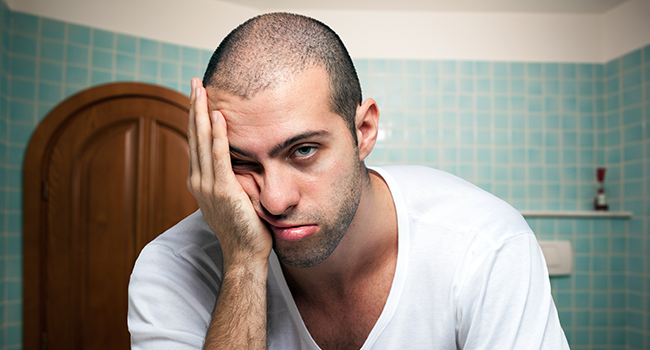There comes a day in any addicts life when there is just nowhere left to go but up. Rock bottom, they call it. Most addicts realize things need to change only when they reach this stage. Some come to their senses sooner, but that is a very rare. Either way, a reason to become sober has to be found. No addict will ever become sober “just because”, there are always a few reasons that trigger the will to change and provide the drive to persevere through the difficulties of the path to recovery. Here are a few good reasons that any addict should contemplate and consider kicking their bad habits.
Change
The broadest of all good reasons to become sober. Seems only fitting, to begin with it. When you take a step back and look at your life from the outside, what do you see? Most of the time it is not a pleasant view. Looking back, the road you took is often littered with people you hurt and cheated, wasted potential and broken promises. Getting sober to turn this around and simply being better is a great reason.
Memories
When most of your days are spent in a haze of drug-induced euphoria or simply erased from memory by drinking yourself into a stupor there is very little to show for it. The brain doesn’t register and store memories if it is overwhelmed by various chemicals that induce visions and dreams. Same goes for when you have used so much that you just pass out until the next day if you are lucky. Prolonged abuse even reaches back and slowly erodes dear and cherished memories of friends and family, from the time when you were happy. From the time when they were with you.
Parenthood
It is a truly harrowing feeling, that moment when you realize you have failed as a parent. If your years of drug abuse has not erased your childhood memories yet, you remember what it was like to have a mother, a father, and understand, that your own children will never have that kind of memories if you don’t stop. They have to be self-reliant because your addiction has made sure you miss school events, they have to pack their own lunch, their hygiene lacking because you didn’t even notice their dirty clothes or unkempt hair. All that mattered was the next hit. To better your children’s lives is any parents duty, the only duty, really. If an addiction has come between you and this most important of parental responsibilities, it is quite obvious what needs to be done.
Love
Do you remember what it was like to be looked at by your significant other with passion, love, and desire? Most likely these days they look at you with pity, sadness and perhaps even contempt. How could they not? They married a different person, one that could take care of themselves and did not act a fool in public and among friends. Perhaps abusive attitude drove a wedge between you and now they are just putting up with you, for whatever reason. Ever think they would be better off without you dragging them down? Wasting their years as much as you do your own. Being a better spouse is a great reason to become sober, no one should suffer due to your bad decisions, least of all people who love you.
Providing
Any addict will tell you, having a “hobby” like that is not cheap. In the case of drugs, most of them are highly illegal which allows for the dealers to set the price. In the case of alcohol, damage done to your health as well as personal and public property does not come cheap to fix or replace. Most addicts will sell their most prized possessions, often even those of friends and family, just to get that one more bump, just to stop the pain, judgment and self-loathing. This means that your spouse and children can not trust you to provide for them and their future. No education, no summer camps, no Christmas, no anniversaries, no vacations. The list goes on. Getting sober to provide and secure the future of your family is paramount. If when you look at your own family, can you honestly be proud and say that you have done well by them? Didn’t think so.
These and much more are great reasons to become sober. But it is important to understand, that these are just catalysts for this transformation. You need to want it for yourself as well, as a human being you must want to live, love and lead a normal life. None of which are possible when addiction gets in the way. Do not hesitate to seek help, from loved ones, from friends and specially trained professionals. Becoming sober is a long road, and every road begins with the first step. Take yours today.














